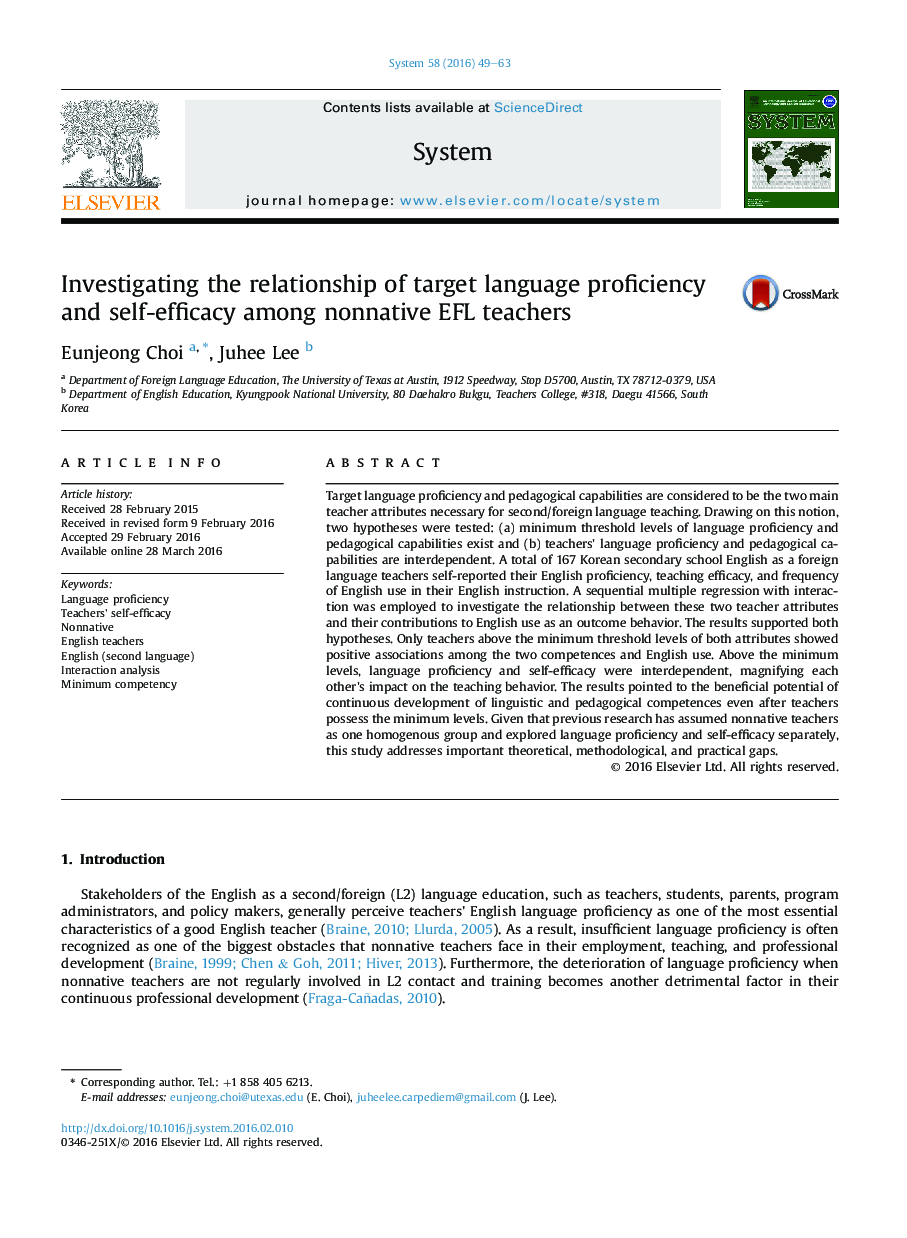| Article ID | Journal | Published Year | Pages | File Type |
|---|---|---|---|---|
| 372993 | System | 2016 | 15 Pages |
•The interaction effect of teachers' L2 proficiency and self-efficacy was tested.•Minimum threshold levels of both L2 proficiency and self-efficacy exist.•Continuous development is necessary even after exceeding minimum competency levels.•L2 proficiency and self-efficacy are interdependent.
Target language proficiency and pedagogical capabilities are considered to be the two main teacher attributes necessary for second/foreign language teaching. Drawing on this notion, two hypotheses were tested: (a) minimum threshold levels of language proficiency and pedagogical capabilities exist and (b) teachers' language proficiency and pedagogical capabilities are interdependent. A total of 167 Korean secondary school English as a foreign language teachers self-reported their English proficiency, teaching efficacy, and frequency of English use in their English instruction. A sequential multiple regression with interaction was employed to investigate the relationship between these two teacher attributes and their contributions to English use as an outcome behavior. The results supported both hypotheses. Only teachers above the minimum threshold levels of both attributes showed positive associations among the two competences and English use. Above the minimum levels, language proficiency and self-efficacy were interdependent, magnifying each other's impact on the teaching behavior. The results pointed to the beneficial potential of continuous development of linguistic and pedagogical competences even after teachers possess the minimum levels. Given that previous research has assumed nonnative teachers as one homogenous group and explored language proficiency and self-efficacy separately, this study addresses important theoretical, methodological, and practical gaps.
